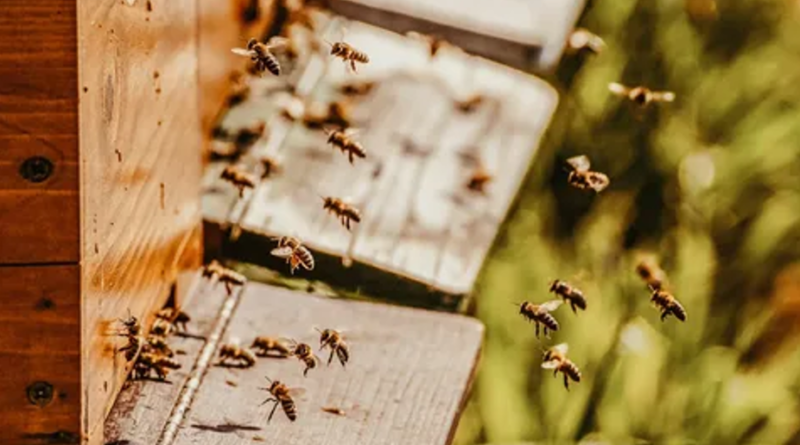Why Bees Are Considered Keystone Species
Bees are widely admired for their buzzing presence and contribution to nature, but their significance reaches much deeper. Classified as keystone species, bees play a pivotal role in sustaining the structure and health of ecosystems. Their primary function as pollinators is crucial for the reproduction of many plants, which supports entire food webs and biodiversity. This article delves into why bees are regarded as keystone species, examining how their activities underpin the balance of various ecosystems. Additionally, it highlights the potential consequences of their decline, which can impact environmental stability and human agricultural practices, underscoring the importance of their conservation.
The Concept of Keystone Species
In ecological terms, a keystone species is one whose impact on its ecosystem is disproportionately large compared to its biomass or abundance. This concept, introduced by the ecologist Robert Paine in 1969, highlights species whose presence and activities have a significant effect on the structure and diversity of their ecosystem. Keystone species are essential for maintaining ecological balance and supporting a wide range of other organisms.
Bees epitomize the idea of a keystone species. Their role as pollinators affects many aspects of the ecosystem, from plant reproduction to food supply chains. Without bees, the survival of many plants, and consequently the animals that depend on those plants, would be at risk. This profound influence on ecosystem dynamics underscores why bees are classified as keystone species.
Bees as Essential Pollinators
One of the primary reasons bees are considered keystone species is their role in pollination. Pollination is the process by which pollen is transferred from one flower to another, enabling plants to reproduce. Bees are among the most effective pollinators due to their behavior and physical adaptations. As they gather nectar from flowers, pollen sticks to their bodies and is carried to other flowers, facilitating cross-pollination.
This process is crucial for the reproduction of many plants, including a significant portion of the crops humans rely on for food. According to the Food and Agriculture Organization (FAO), around 75% of the world’s food crops depend on animal pollination, with bees being responsible for the majority of this pollination. Without bees, the production of fruits, vegetables, and nuts would decline dramatically, impacting food security and agricultural economies.
The Impact of Bee Decline
The decline in bee populations poses a serious threat to ecosystems and agriculture. Factors such as habitat loss, pesticide use, climate change, and diseases have contributed to the decline of bee populations worldwide. As keystone species, the loss of bees can lead to a cascade of ecological consequences.
For instance, reduced pollination can result in the decline of plant species that rely on bees for reproduction. This, in turn, affects the herbivores that depend on these plants for food, and subsequently, the predators that rely on those herbivores. The entire food web can be disrupted, leading to a loss of biodiversity and ecosystem services.
The Role of Bee Removal Services
In urban and suburban areas, managing bee populations is crucial to ensure both human safety and the health of bee populations. Bee removal services play a vital role in this regard. For example, if bees establish hives in places where they pose a risk to people or property, professional bee removal services are needed to relocate them safely.
In Los Angeles, where urbanization and bee habitats overlap, it’s important to engage with a reputable bee removal service Los Angeles to handle such situations carefully. These services not only protect people but also ensure that bees are relocated in a way that allows them to continue their ecological roles.
Bees and Biodiversity
Biodiversity is another area where bees’ keystone role is evident. Bees support a wide range of plant species, which in turn supports a diverse array of other organisms. Healthy plant communities provide food and habitat for numerous animal species, contributing to overall ecosystem stability.
The presence of bees helps maintain this biodiversity by ensuring the reproduction and survival of many plant species. The decline of bees, therefore, threatens the intricate web of life that depends on these plants. Protecting bee populations is essential for preserving biodiversity and the resilience of ecosystems.
Conservation Efforts and Their Importance
Conservation efforts aimed at protecting bee populations are crucial for maintaining their keystone role in ecosystems. Initiatives include habitat restoration, reducing pesticide use, and supporting research on bee health and behavior. Public awareness and education are also important for fostering a supportive environment for bees.
Individuals can contribute by planting bee-friendly gardens, avoiding harmful chemicals, and supporting local conservation efforts. By recognizing the importance of bees as keystone species and taking action to protect them, we can help ensure the health and stability of our ecosystems.
Summary
Bees are integral to the health and functioning of ecosystems, making them quintessential keystone species. Their role in pollination supports plant reproduction, food production, and biodiversity. The decline of bee populations poses a significant threat to these ecological processes, highlighting the need for effective conservation measures and management practices. Understanding and supporting the vital role of bees helps safeguard the environment and maintain the balance of natural systems.

